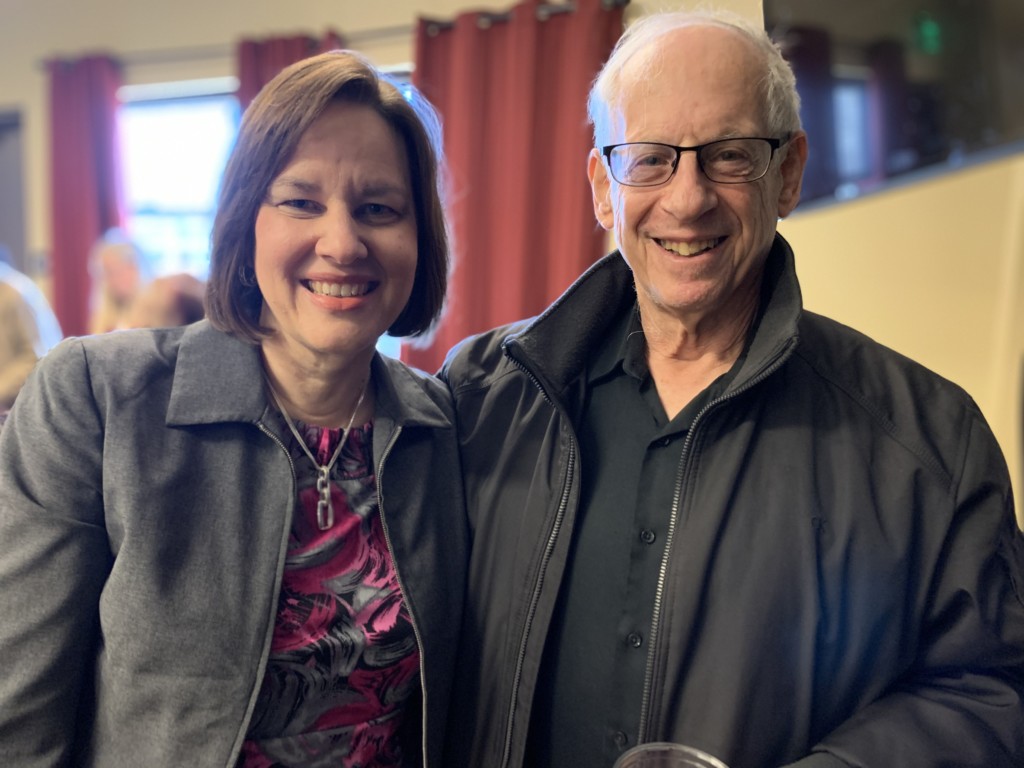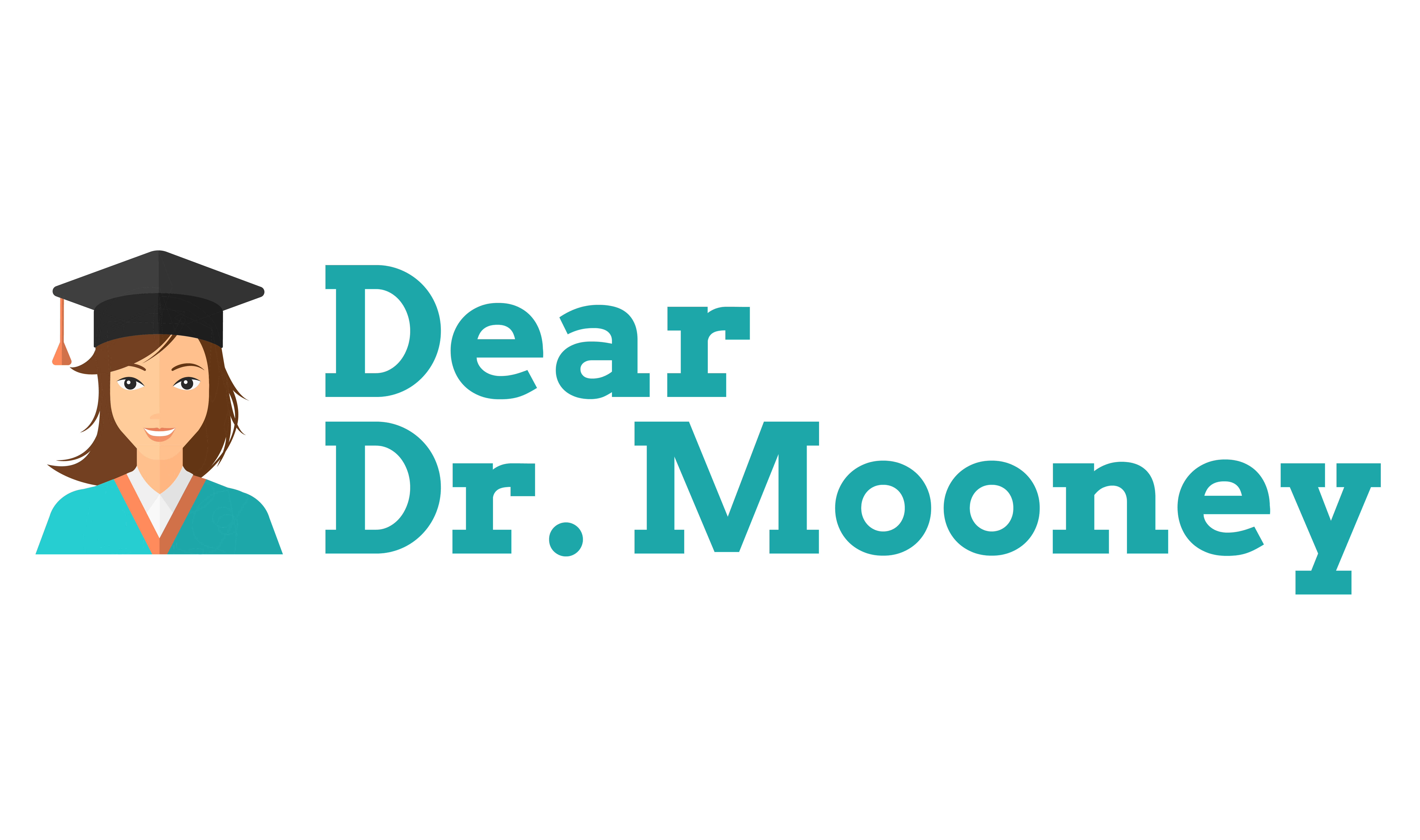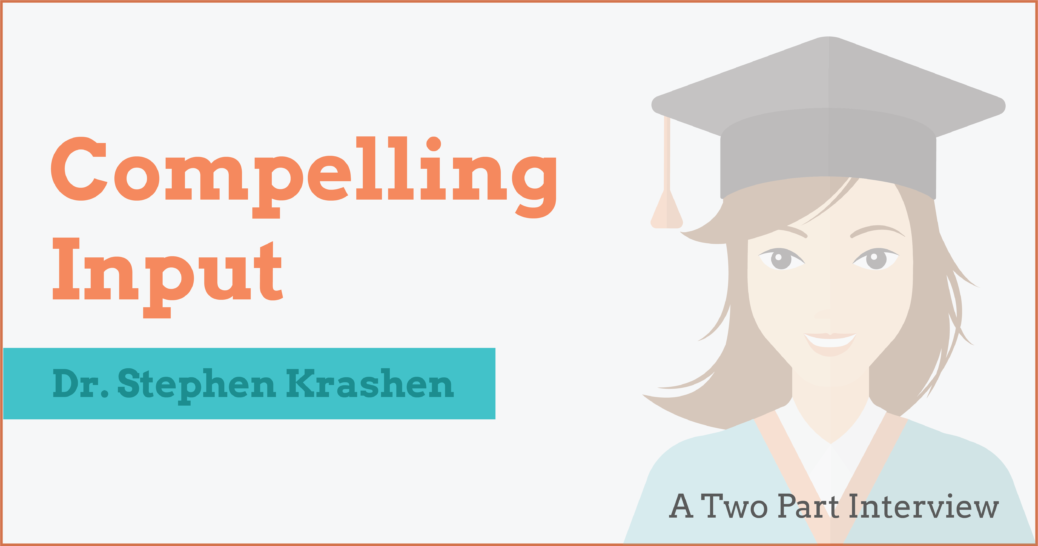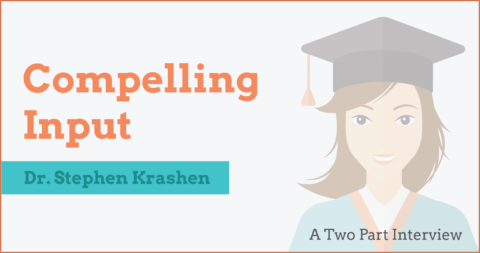Renowned language acquisition theorist, Dr. Stephen Krashen, was recently in my city as the keynote speaker for a bilingual education conference. In spite of his busy schedule, he graciously agreed to an exclusive interview for readers of Dear Dr. Mooney.
We met at a local coffee shop where he had a latte and a croissant, and I had a cup of hot tea. Among other things, we discussed his views on reading, criticisms of his most popular theories, and his life outside of work.
In the first of a two-part interview series, you get the best excerpts of what Dr. Krashen had to say.
To start out, we got better acquainted.
Angela Mooney (AM) – Thanks so much for agreeing to talk with me. I know the Dear Dr. Mooney community will enjoy hearing directly from you!
Stephen Krashen (SK) – Sure. You’re welcome.
AM – What do you like to do when you’re not reading, writing or speaking about language acquisition?
SK – Playing the piano. Pumping iron. Grandchildren.
AM – How many grandchildren do you have?
SK – Four. Two in California and two in New Jersey.
AM – So you spend time on both coasts, then?
SK – I just visited my son in New Jersey. We have a bat mitzvah coming up soon. So, it’s family, like anybody else, and family revolves around synagogue where I play the piano…when I have time. I’m not very good. I’m just okay. I used to be a pianist, a piano player. Never practiced. I just played.
Everybody has a path and the goal of life and education should be to help you find your path.
Stephen Krashen, Ph.D.
AM – Did you just “acquire” the ability to play the piano? [humorously alluding to his theory of language acquisition, as opposed to language learning]
SK – No. I learned how. Classical lessons. Studied music in college. Played Chopin. Played all the scales. Studied music theory. Took classes in it. Then, one day I was doing my workshops in California somewhere and in between workshops I was exhausted. I just plopped down on the bed and turned on the TV. I was too weak to turn the station, even using the remote.
Biography [the U.S. documentary television series] came on with Bing Crosby singing “Moonlight Becomes You” to Dorothy Lamour in the film Road to Morocco. It just blew me away. It was so gorgeous. He did it so well, and I felt dirty and sick because it was Bing Crosby a popular singer…. Here I am, I have a degree in music history. I know all about Bach’s grandchildren, etc. [referencing his perceived inability to make music like that]
At my workshop were two high school teachers I knew in private life because of their sons and my son. I invited them to my hotel room for lunch. We had room service, and they gave me therapy. [Chuckles] They said, “This is okay. Bing Crosby is very good. You should follow your bliss.”
On the way home I stopped at McCabe’s Guitar Shop, bought fake books, and I’ve never looked back. I’ve been playing junk ever since then. I found my calling. Everybody has a calling. Everybody has a path and the goal of life and education should help you find your path. Society needs different people. We can’t all do STEM.
Next, our conversation turned to Dr. Krashen’s thoughts on how education can help students find their calling.
AM – What do you think is the most effective thing that teachers of ELs can do to promote rapid language acquisition in their students?
SK – Hit the school library. A good school library. Browse in the library. Find what you like and do lots of narrow pleasure reading.
AM – What makes a good school library?
SK – Lots of books, liberal checkout procedures, time to browse.
AM – By liberal checkout, do you mean they can keep books as long as they want? Something else?
SK – A lot of libraries are moving towards that. They’re getting rid of fines. That’s a great experiment. There also needs to be a good school librarian who can recommend books. A good school librarian is someone who loves children, loves children’s literature.
AM – Yes, I worked with a fabulous one in Texas. She was that kind of person. Kids would go to the library just to see her.
SK – There you go. She probably affected thousands of kids.
AM – I’m sure. Students would go to her and say, “I like horses.” And she would say, “Come this way, I have three books for you.” She would pick out the things that they wanted to read. Now, what about classroom libraries?
SK – Yes. I like about classroom libraries. Here’s a good idea. I don’t remember where I got this. It could have been Carol Jago. Each teacher has their own personal reading interest. Say, one high school English teacher likes mysteries, another likes historical fiction, another science fiction. [They fill their classroom libraries with these books.] Kids know that, and they can visit any of the high school English teachers to borrow their books. It was preselected for them.
AM – That makes sense. Then one teacher doesn’t have to have so many books.
SK – Brilliant.
AM – That’s a great idea. Do you think elementary teachers should have bilingual books in their classrooms, too?
SK – Oh yeah. Wouldn’t it be wonderful? And comic books, more and more.
AM – Graphic novels?
SK – They’re too expensive, but wonderful. I still can’t wait when I see a new one.
And, some provoking thoughts about reading…
AM – You talk about free voluntary reading of fiction and how important it is. Practically speaking, do you have an idea about how much time teachers should devote to self-selected reading in their classroom? Should they set aside classroom time…?
SK – Let me tell you what my colleague, Beniko Mason, says all the time. Her claim—and she’s very compelling—is that [reading] is the only thing that counts. It’s optimal input. It’s the best. Anything else isn’t doing anyone any good. Stories that are completely compelling and captivating and wonderful reading material…what else is there? Beniko argues forcibly against eclecticism – a little of this and a little of that. Why even do a little of what’s not working?
Why even do a little of what’s not working?
Stephen Krashen, Ph.D.
AM – Because they’re being told to. That’s why teachers are doing that.
SK – Yes. I understand, but our job as academicians is to say what works. In her program, what she recommends, is you begin with stories—telling stories. She calls it story listening. Tell the story, make the words comprehensible by drawing, by translation, by synonyms…they do a lot of that. They [students] want to hear more stories. Everybody likes stories, it’s universal. Gradually they start moving to some simple reading. Her students, college level, do simple reading for two years. That’s remarkable, and that’s what it takes. She says [to] give them a long period of very, very, very, easy contrived texts—years of it. That’s what it takes. And in the languages I’m good at, I had the equivalent of that.
AM – Do you think a third grade teacher could use stories to teach other content like math or science?
SK – I don’t know. I do know that if you do stories, kids get a lot of content. A huge amount. Do a lot of literature, and you get it all. You read science fiction, and you get all of the academic vocabulary you need for science. A lot of science knowledge, if you do it all in your first language. It’s the principle of bilingual education. For English Language Learners or kids who are immigrants, that’s a different story. Then you have to teach content. The answer is bilingual education, but if you can’t do bilingual education, sheltered [instruction] is the way of doing it, but it’s not as efficient.
AM – But sheltered instruction is better than not doing anything at all, right?
SK – Absolutely. If I were doing content, say Science, I’d let the kids choose the topic. “We’re doing Science. What do you want to know about it? Tobacco? Marijuana? Let’s do a real study.” You find out you learn so much science if you find the question compelling.
Then, we got to one of the most overlooked education strategy debates of our time: whether it’s more effective to acquire language through content or with explicit, direct instruction.
AM – I’ve talked with some content teachers, and even if they believe in comprehensible input and making the content compelling, they get so much pressure for explicit teaching of academic language. This is particularly true if they teach long term English learners in middle school or high school.
SK – Here’s my prediction. If an English acquirer develops a reading habit, they don’t become a long term English learner (LTEL). If they don’t develop a reading habit, then they’re a LTEL. Simple as that. That’s my prediction.
AM – I was talking with teachers recently about how the goal regarding LTELs should be prevention. To prevent them from becoming long term, we need to focus on that in the elementary school.
SK – Right. They need to read a lot. Stories. Good books, comic books, magazines. Whatever they like. Narrow pleasure reading, in any area. You’ll be fine.
AM – Do you have any other suggestions to give to teachers when they have so much pressure from high-stakes testing? They’re concerned that their students have to be able to do XYZ. I think teachers are afraid to not do this explicit teaching.
SK – Right. My feeling is that if they [students] would do lots of reading, they would be able to do XYZ. The problem is not whether I’m right or wrong, but that it’s not even considered a hypothesis worthy of consideration. That’s the tragedy. Show me I’m wrong. Fine. But this isn’t even on the table in many cases. Many people have never heard of it.
AM – I think they’re just so afraid to try. The testing is just so high stakes these days.
SK – They’re isolated. I don’t blame them. If it’s just one crazy idea somewhere, then it’s hard, but if there’s a group of people doing it. If more cases are presented…
AM – They might be willing to try.
Compelling input. It’s obvious from our discussion that Dr. Krashen believes in the necessity of compelling input. He alluded to it in his personal story of playing the piano. Only music he truly enjoys keeps him at the piano today.
He contends students need access to libraries that have books of interest to them. It is these texts that compel them to read more and more, thus learning more content and acquiring more language. It is authentic investigations of topics of interest that compel students forward in their learning.
Dr. Krashen encourages teachers to make the content of their classrooms comprehensible for language learners. Even more than comprehensible, he suggests the content must be compelling. That is, it’s so interesting, so engaging, that they can’t help but get involved, trying to understand and trying to be understood. It is at that point the effort of learning content or language falls away and acquisition begins.
Next week…
Dr. Krashen shares how he developed his interest in language acquisition, and he responds to critics of his most popular theories.

Stephen Krashen is professor emeritus at the University of Southern California. He received a PhD. in Linguistics from the University of California, Los Angeles in 1972. Dr. Krashen has more than 486 publications, among papers and books, contributing to the fields of second-language acquisition, bilingual education, and reading. He is known for introducing various hypotheses related to second-language acquisition, including the acquisition-learning hypothesis, the input hypothesis, and the natural order hypothesis. Most recently, Krashen promotes the use of free voluntary reading during second-language acquisition, which he says “is the most powerful tool we have in language education, first and second.” Many of his publications are freely available on his website, http://www.sdkrashen.com. More about Stephen Krashen here and here.


